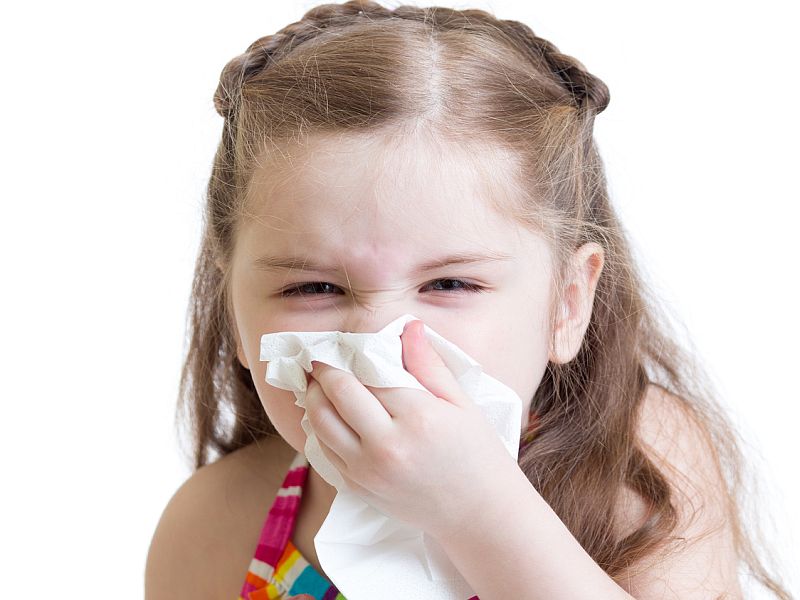
Thursday, June 16, 2016

WEDNESDAY, June 15, 2016 (HealthDay News) -- Up to 40 percent of children in the United States have nasal allergies, the U.S. Food and Drug Administration says.
These kids likely have persistent sneezing, along with a stuffy or runny nose. These symptoms -- known as allergic rhinitis -- are more likely to develop if one or both parents have allergies, the agency noted.
Nasal allergies can be caused by outdoor allergens such as plant pollens (seasonal allergies) or indoor allergens such as mold, dust mites and pet dander.
If your child has seasonal allergies, pay attention to pollen counts and try to keep him or her inside when pollen levels are high, the FDA suggests.
In the spring and summer, during the grass pollen season, pollen levels are highest in the evening. In the late summer and early fall, during ragweed pollen season, pollen levels are highest in the morning. Some molds may also be seasonal. For example, leaf mold is more common in the fall, the FDA said.
Besides monitoring pollen counts, it often helps to keep windows closed in the house and car and run the air conditioner.
There are over-the-counter and prescription medicines to treat allergies, but parents need to be particularly careful when giving these products to children, the FDA said. Allergy shots are another option.
"In the last 20 years, there has been a remarkable transformation in allergy treatments. Kids used to be miserable for months out of the year, and drugs made them incredibly sleepy. But today's products offer proven approaches for relief of seasonal allergy symptoms," said Dr. Jay Slater in an agency news release.
Slater is a pediatric allergist and director of the FDA's Division of Bacterial, Parasitic and Allergenic Products.
SOURCE: U.S. Food and Drug Administration, news release
HealthDay
Copyright (c) 2016 HealthDay. All rights reserved.
News stories are provided by HealthDay and do not reflect the views of MedlinePlus, the National Library of Medicine, the National Institutes of Health, the U.S. Department of Health and Human Services, or federal policy.
- More Health News on:
- Allergy
- Children's Health
- Hay Fever





























.png)











No hay comentarios:
Publicar un comentario